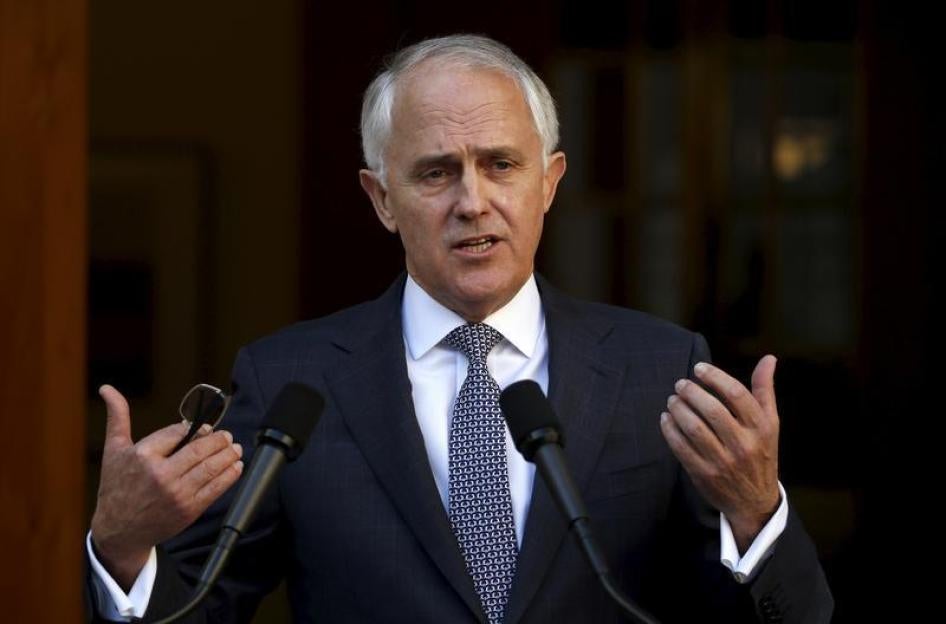(Sydney) – A proposed Australian espionage law will put whistleblowers, journalists, and human rights activists at risk of prosecution, Human Rights Watch said today in a submission to Australia’s Parliamentary Joint Committee on Intelligence and Security. The committee’s hearings are scheduled for January 30, 2018, in Canberra.
The National Security Legislation Amendment (Espionage and Foreign Interference) Bill of 2017 broadly defines “national security” to include Australia’s “political, military or economic relations with another country or other countries.” Under the espionage offenses, the bill provides no public interest defense and no requirement of “intention to cause harm,” meaning that people could face lengthy prison terms for legitimate conduct that is in the public interest.
“If the espionage bill isn’t fixed, it will have a chilling effect on disclosing information in the public interest,” said Elaine Pearson, Australia director at Human Rights Watch. “‘National security’ is defined so broadly that practically any criticism of Australia’s foreign policy could be deemed an espionage offense.”
The Australian government should narrow the definition of “national security,” include intent to cause harm as an element of all offenses, and include a general “legitimate public interest” defense, among other changes to the bill, Human Rights Watch said.
The bill aims to “counter the threat of foreign states exerting improper influence over [Australia’s] system of government and [its] political landscape.” In supporting the measure, Prime Minister Malcolm Turnbull said that, “[g]lobally, Russia has been wreaking havoc across the democratic world” and that “by enacting this legislation, and building the capability to properly use it, we are sending an unmistakable signal: We will not allow foreign states to use our freedoms to erode freedom; our open democracy to subvert democracy; our laws to undermine the rule of law.”
Provisions of the espionage bill infringe on basic rights, particularly the rights to freedom of opinion and expression and the implied right to political communication, under the International Covenant on Civil and Political Rights and other treaties to which Australia is a party, Human Rights Watch said. The proposed measures exceed what is necessary for or proportionate to the goal of protecting national security and democracy.
The Australian government already has measures in place to limit the disclosure of classified information including strict penalties for espionage, treason, terrorism, and disclosure of official secrets, Human Rights Watch said.
“The proposed espionage law will chill free expression and undermine rather than protect Australia’s democratic values,” Pearson said. “If the bill passes in its current form, Australia would be following in the steps of repressive countries like Cambodia and Turkey, whose overbroad espionage laws have been used to jail activists and journalists.”








